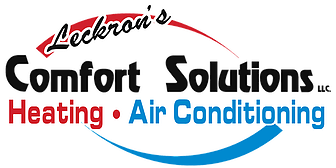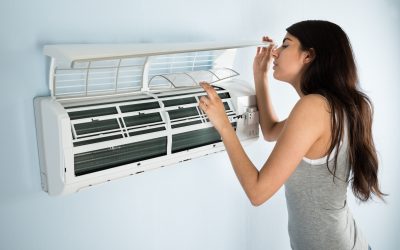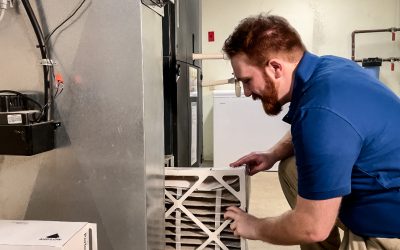Pennsylvanian families know a thing or two about the weather. From frigid winters to humid summers, we rely on our HVAC systems to keep our homes at the ideal temperature.
As the acronym implies, HVAC units are responsible for our homes’ heating, ventilation, and air conditioning. They help control humidity and circulate air throughout the house. Yet there is another component to our HVAC system: air filtering.
Our indoor air often has 2-5 times more contaminants than outdoor air. From pet dander to pesticides – our HVAC system is responsible for cleaning our air. Despite if you use central air or ductless mini-splits, your air goes through a filtering process before being redistributed.
As we learned through the recent pandemic, indoor air quality profoundly impacts your family’s well-being. Aside from filtering for viruses, HVAC systems remove pollutants that exacerbate allergies and asthma. Poor air quality in homes and offices contributes to headaches, fatigue, and lack of concentration. Continued exposure to poor air quality increases the risk of stroke, heart attacks, and cancer.
Looking at how you can improve your home’s air quality is worthwhile. It all starts with your HVAC system.
How HVAC Systems Affect Indoor Air Quality
HVAC systems use filters to remove contaminants and pollution from the air before sending it back. In central air systems, the filtered air passes through ducts before entering rooms. If you have ductless mini-splits, the unit pulls the air into the wall air exchanger, filters, and pushes the air straight into the room. How well the HVAC filters air is largely attributed to how well-maintained the systems are, as well as the quality of the air filter.
How HVAC systems improve or degrade indoor air quality
When well-maintained and properly installed, your HVAC system improves your air quality. Regular maintenance allows you to catch any trouble spots before they lead to a breakdown and ensure air is passing through cleaned vents to your various rooms.
Today many central air systems can pull in fresh air from outside, replacing the stale and recycled air in your home. Cooled air dries out environments, lessening the ability for mold to grow. Furthermore, adding an air purification system to HVAC systems takes air quality to the next level.
However, improperly maintained systems do quite the opposite. When dirty filters are left to try to do the job of a clean filter, allergens such as mold, pet dander, and pollen slip through and recirculate through your home. Viruses and bacteria are unstopped, giving free rein to pass from person to person through the vents. To make matters worse, any cleaning supply, chemical solution, aerosol, or tobacco product can recirculate, exposing home occupants to harmful substances.
Common air pollutants that HVAC systems remove
There are generally three categories of contaminants: human activities, vapor from construction materials, equipment, furniture, and biological pollutants. Human activities produce by-products like carbon monoxide, pesticides, and smoke. Vapors from materials include asbestos, formaldehyde, lead, or radon. Biological contaminants are irritants such as allergens, mold, dander, pollen, and dust.
Which of these your HVAC system will remove is mainly dependent on the type of filter you use. Using a filter with a higher rating will filter more contaminants but may also make your unit work harder to push air through a thicker filter. Depending on the area you live in will also influence which type of filter you use. For example – if you are filtering smog, you will want a higher rating than those not exposed to that type of pollution. Most homes use a filter in the 8-13 MERV rating range.
MERV Ratings
| 1-4 | Pollen, Dust, Clothing and Carpet Fiber |
| 5-8 | Pollen, Dust, Clothing and Carpet Fiber, Hair Spray, Mold Spores |
| 9-12 | Pollen, Dust, Clothing and Carpet Fiber, Hair Spray, Mold Spores, Pet Dander, Legionella |
| 13-16 | Pollen, Dust, Clothing and Carpet Fiber, Hair Spray, Mold Spores, Pet Dander, Legionella, Bacteria, Cooking Oil, Tobacco Smoke, Smog |
Benefits of Properly Maintained HVAC Systems
Regular maintenance of HVAC systems enables your system to work to its fullest capacity. Most reputable HVAC companies have maintenance plan options. These regular check-ins catch any issues before they manifest into a more significant problem or, worse, a breakdown.
Improved respiratory health and reduced allergies
Ensuring proper airflow for your unit, regularly cleaning your filters, and removing trapped pollutants from your air ducts allows your home to have fewer allergens. Dust, pet dander, hair, and other contaminants naturally be drug into your home. Removing them from the air means those with asthma and allergies suffer less.
Increased energy efficiency and cost savings
Performing regular system maintenance on your HVAC system is like changing the oil on your car. Sometimes in the process, they may notice something awry with your vehicle. Your HVAC maintenance is nearly the same concept. Regular maintenance allows them to catch issues before they morph into major problems, or in other words, major costs. While there, technicians check condenser coils, refrigerant levels, and air filters, and clean and lubricate any parts.
It is easy to assume that your unit will be fine and not need any additional support. In reality, your unit will naturally accumulate dirt, dust, and other debris. This accumulation prevents airflow, and your system, in turn, must work harder. The harder your system works, the more energy it uses and the more money you spend on monthly bills.
At Leckron Comfort Solutions, we understand a maintenance plan is an investment. We have options available to fit various budgets. We provide customizable plans based on your needs because we know that each unit is individual to the home.
Extended lifespan of HVAC systems and reduced repair costs
Think of your car maintenance and repair work. When you take good care of your car with regular oil changes and tune-ups, it naturally lasts longer.
The same is for HVAC systems. Regularly servicing your system extends its life, decreasing the taxing nature of running a poorly functioning machine.
Furthermore, technicians identify problems before they become more significant, potentially causing system replacement. During regular maintenance, technicians look for common trouble spots. Should there be an issue – they notify you immediately so the problem can be rectified instead of waiting on a complete breakdown.
Common Issues that Affect HVAC System Performance
Many HVAC systems come across the same type of issues. Experienced technicians have had many opportunities to diagnose and repair particular issues. Think of it like a surgeon – if their specialty is in setting broken bones, they will have repeated it enough times they know exactly how to fix a break. This concept is the same for HVAC technicians.
Clogged air filters and ducts
Most HVAC units allow you to change air filters yourself. Regularly changing your air filter prevents buildup and pollutants from passing through. Because they are clean, they also allow air to move easier through the filter and reduce your HVAC system’s stress of pushing air through a clogged filter.
As for ducts, technicians inspect and clean your ducts as necessary. This step ensures that any pollutants inside the ductwork do not blow into your rooms.
Mold and bacteria growth in the system
The last thing you want is your family breathing mold spores or bacteria. Air filters remove these from the air passing through. The regular cleaning provided by a service contract allows technicians to keep not just your air filters, but your system clean, as well as prevent mold or bacteria from growing in your HVAC system.
Poor ventilation and airflow
Be it from clogged ducts or dirty filters, poor ventilation and airflow cause indoor air quality to plummet. Because your HVAC system can no longer keep up with the unit’s demand, filtering out the irritants becomes harder. Regular maintenance on your system ensures your HVAC system is providing adequate airflow for your home.
Oversized or undersized HVAC systems
Technicians evaluate your home and its unique setup. They then match it to an HVAC system that fits the demand. When a system is too large for an area, it can short cycle, meaning it cycles less than it should to adequately cool a home. For many homes, especially in our Pennsylvanian summers, this short cycling means humidity can go unchecked – a house with high humidity risks mold.
On the contrary, when a system is too small for its space, it struggles to meet the area’s demand. This causes the opposite of short cycling and makes the system run nonstop to keep up. The repercussions of overuse are wearing out your system early and increased energy bills.
Strategies for Improving Indoor Air Quality
Aside from keeping your filters changed and ducts cleaned, there are other steps you can take to improve your indoor air quality. In some situations, maintaining air quality is exceptionally challenging, and you must do more than just your monthly filter replacement.
Use of air purifiers and dehumidifiers
Sometimes air quality must be addressed before it can circulate through your system. For example, if you have an exceptionally humid area, such as the basement or where litter boxes are, a separate dehumidifier can fight against excess moisture or bacteria growth. If a family member falls ill or has terrible allergies, an air purifier can be helpful for that family member. Just like your HVAC system, these units must be maintained to ensure continued success with their use.
Elimination of indoor air pollution
Take a peek at your typical household activities. Chances are you are partaking in something very innocent that could damage indoor air quality. For example, do you burn candles, incense, or sage? You may firmly believe in using Lysol regularly or bleaching the tile floors. While there is no judgment on making your home smell pleasant or keeping germs at bay, the products increase indoor air pollution.
It’s more than what you use, too. Carpeting, hardwood floors, furniture, and paint all contain and let off pollutants in your home. Furthermore, carpets and furniture gather dust, dander, and other particles – creating a breeding ground for allergy problems. Consider replacing these if your indoor air quality needs to be improved.
Smart technology and sensors for real-time air quality monitoring
Today’s world has the advantage of smart technology for your HVAC system (LINK SMART HVAC SYSTEM ARTICLE HERE). For your home, this means the unique advantage of being able to have an alert when your air quality is lacking. Smart HVAC systems can notify you if you need to bring in outside air or if the air quality is poor due to filters needing changed or an issue with your system itself.
Call in the Professionals
Improving your indoor air quality should be a manageable task. Understanding the factors that cause poor air quality and how to combat them gives you the tools to improve your home’s air quality. Regular HVAC maintenance is easier than you think.
Team up with a trusted HVAC company with technicians specializing in system maintenance. You may be taking all of the proper steps by eliminating issues, changing filters, keeping up with housework, and yet the problem could be an internal component with your HVAC, or the system is incorrectly sized. At Leckron Comfort Solutions, we aim to help you keep your family comfortable and safe. Our technicians are trained to monitor your system for what you need – not to upsell you. We strive to have customers for life, not just for sale, and we will guide you on how to improve your indoor air quality.
“Knowledgeable employees that show respect to property. Makes sure homeowners understand function & operation of equipment. Fair pricing. Quick to serve. On time. A++” – SKL, Customer
Ensuring your home has clean air is the first step to maintaining a healthy family. Don’t delay focusing on your air quality until a major health issue results from it. Leckron’s technicians are ready to help you today to reduce pollutants in your home.
Give us a call to discuss how Leckron’s can improve your home’s indoor air quality. After all, there is nothing more important than your family’s health.




